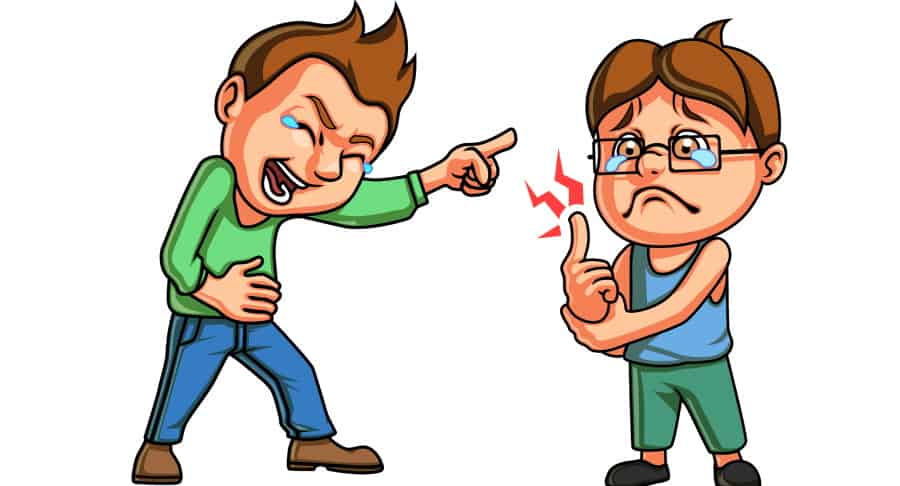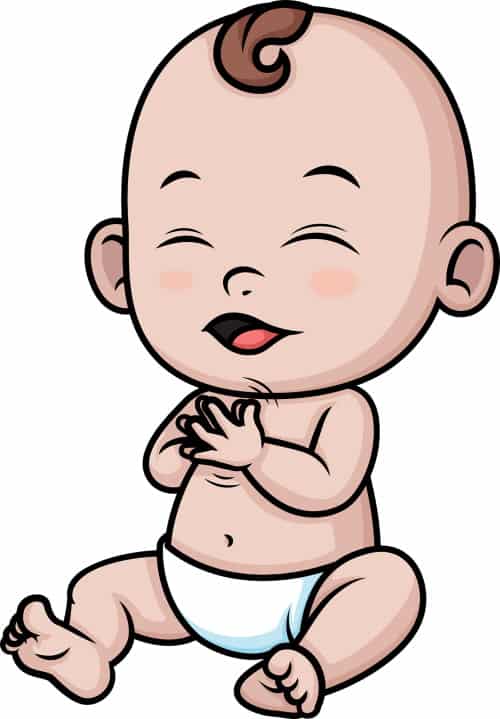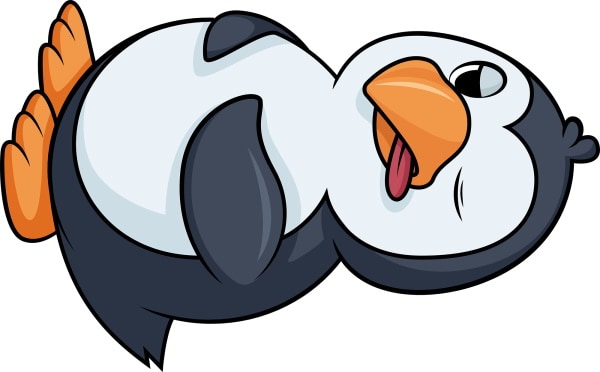5 Yr Old Hurts Himself to Be Funny
Have you ever laughed at someone when they got hurt? If so, you were more than likely a child, though not everyone grows out of that phase. Just look at the inappropriate humor perpetuated in today's entertainment! Thus, it really shouldn't surprise us when our own child exhibits this behavior. Yet, it still makes us wonder, 'why does my child laugh when someone gets hurt?'
It's common for children to laugh when someone gets hurt despite social mores. Research tells us the benefits of humor are learned early on, causing children to use laughter for deflecting personal insecurities to elevating social status. This often leads to inappropriate laughter past infancy.
As a mom of four and former public school teacher, I've certainly witnessed many situations where kids laugh when others (and even themselves) get hurt. In this article, I'll share what I've learned about this and suggestions for handling it effectively when it happens.

Contents
- 1 What Does It Mean If You Laugh When Someone Gets Hurt?
- 1.1 Why do babies laugh when someone gets hurt?
- 1.2 Why do teens laugh when someone gets hurt?
- 2 Why Some People Laugh When They Get Hurt
- 2.1 Why do toddlers laugh when they get hurt?
- 2.2 Why do older children laugh when they get hurt?
- 3 Disney Dark Humor (and Other Children's Entertainment)
- 3.1 Emphasis on Death and Aggressive Behavior for Humor
- 3.2 Overuse of Sarcasm and Bullying
- 3.3 Unintended Falls Used As Slapstick Humor
- 4 What To Do About Laughing At Inappropriate Times
- 5 Punchline for Why Does My Child Laugh When Someone Gets Hurt
What Does It Mean If You Laugh When Someone Gets Hurt?
Most of the time laughing at someone when they get hurt is a characteristic behavior of immaturity, which is why it's most often found at playgrounds and schools. What does this mean?
In most instances, laughing when someone gets hurt does not mean the person laughing actually thinks pain is funny. Sometimes laughter is a result of genuine surprise, but often, laughing at someone's painful moment is an opportunity for self-protection or promotion in some way.
As as teacher, each year I've had to deal with students laughing at others' misfortunes. Kids are clumsy; and kids can be meanspirited. These two often went hand in hand. But I had to learn how to deal with that and one part of that was understanding why it happened in the first place…why kids laugh at someone getting hurt.
Let's look closer at what I learned about how this relates to babies and teens, as well as those in between.
Why do babies laugh when someone gets hurt?

Much to parents' delight, babies start to laugh at 4 or 5 months, though there are some involuntary exceptions that come sooner. But why do babies laugh when someone gets hurt?
Babies laugh when someone gets hurt, even though babies don't have an understanding of pain in others. Instead, babies laugh because of the surprise effect that happens when someone gets hurt or due to the commotion that may be associated when someone falls, trips, or hits their head, for example.
Babies have no malicious intent for laughing when someone gets hurt, so there's no need to be concerned. Instead babies are simply reacting to the situation, almost involuntarily.
When they hear a loud noise, they may startle and then laugh to thwart fear, even if the noise was actually someone tumbling down the stairs. They may also laugh at what looks like a slapstick prank, for instance, if someone bumps their head and goes 'oomph!' really loudly. These are things that a baby will laugh at even if someone was hurt, benignly or not.
Why do teens laugh when someone gets hurt?
Teens laughing when someone gets hurt is very different than when babies do it. There are short bursts of laughter in cases of shock or surprise, but other than that, why do teens, then, laugh when someone gets hurt?
More times than not, teens laugh at the expense of others for personal gain. Whether teens laugh because of shyness, insecurity, peer pressure, or social hierarchy, teens laughing at someone getting hurt usually has more to do with themselves than the injured party.
For example, students often laugh at a peer experiencing an embarrassing moment because it (in their mind) directly affects social standing. They feel there's a primary correlation between their social status and their peer's, and if their peer goes down a notch (seemingly from the embarrassing event), then they are elevated automatically. Laughing inappropriately is a way to make this all happen.
Research also has shown that people laugh in the case of humiliating others as a form of social connectedness, especially for males. Therefore, laughter is sometimes used as bonding tool whether it's collectively disrespecting someone else or laughing at their misfortune.
Special Note for Middle Adolescents:
For those who fall in between infancy and teens, there's a slow rise, depending on personal character development, for laughing when someone gets hurt. Suffice it to say, the closer they move toward teen years, the more the reasoning for laughing at others who get hurt is less innocent and 'child-like.'
In the classroom, one thing I learned about children who laugh when someone gets hurt are often looking for attention. It's the class clown idea, really. They laugh at someone, make a joke of the situation, to get others to laugh. Once they have an audience, the pattern continues. Likewise, they show others how to do this too.
For more on children and laughter, I highly recommend these other articles:
- Funny Things That Kids Will Laugh At (Easy to Do)
- Sense Of Humor In Gifted Students: What You Need To Know
- Is it Bad For Babies To Laugh Too Much? (We Find Out)
Why Some People Laugh When They Get Hurt
It's not uncommon for even adults to laugh at themselves when they get hurt. Children and teens show this behavior too. So why do some people laugh when they get hurt?
Some people laugh when they get hurt for many of the same reasons they laugh at others when hurt. Laughter at one's self when hurt is often a tool for self-preservation or protection, and even promotion, as unlikely as that might sound.
Let's look at how toddlers and older children/teens handle this issue, and what similarities and differences they may have in responding to their own pain through laughter.
Why do toddlers laugh when they get hurt?
Toddlers are generally what we call children from their first birthday to preschool age, around 3 years old. By this age, toddlers laugh daily, often at things we don't quite see as humorous. For instance, why do toddlers laugh when they get hurt?
The most likely reason toddlers laugh when they get hurt is to ease anxiety. The fear, shock, and surprise of feeling unexpected pain leads them to laugh as an attempt to alleviate the unwanted feelings. Toddlers do not laugh at pain because it's fun or pleasurable.
Toddlers' laughter may outlast the painful episode if it's quick and relatively benign, and they may even simply continue playing or carrying on as before. However, if the pain is persistent or has repercussions such as bleeding, most all toddlers will stop laughing and display clear expressions of hurt like crying or yelling out.
Why do older children laugh when they get hurt?
Just like with toddlers, older children are likely to laugh every day. But unlike toddlers, laughing at themselves is a different experience for older children and teens. Why do older children, and teens, laugh when they get hurt?
Older children and teens laugh when they get hurt similar to why they laugh when hurt: it's self-protection or gain. Laughing at their own expense provides a release for tension either from awkward or painful situations and an opportunity to turn a negative moment into a potentially elevating one.
Dr. Louis R. Franzini states in his book, Kids Who Laugh: How to Develop Your Child's Sense of Humor , (available on Amazon) that humor is often used as a coping device for children to help them deal with shyness or being teased. Children may laugh at themselves even when hurt from tripping or bumping an elbow because of timidity. They don't risk letting others know their pain.
As well, sometimes older children and teens laugh at themselves as a form of self-deprecation. Research tells us that self-deprecating humor is used for social standing according, although it's tricky because this highlights one's perceived deficiencies.
Disney Dark Humor (and Other Children's Entertainment)
It's really no wonder that children get confused about laughter and appropriate humor. Spend some time watching kids cartoons, or think back to the Disney shows you watched growing up, and what's clear are the mixed messages given in song and color!
Children's entertainment is fraught with mixed messages about humor. From emphasis on death and aggression to teasing and bullying behavior to accidents for comic relief, children's entertainment often uses adult themes for a surprisingly dark humoristic approach.
Let's look at a few ways Disney and other producers of children's entertainment incorporate dark humor in their creations. While I'm focusing here on film, but that's not to insinuate it's the only source for this kind of entertainment. There are also many examples of dark humor in children's literature, video games, and toys.
Emphasis on Death and Aggressive Behavior for Humor

The amount of deaths or aggressive acts in children's cartoons is much more than one would ever think, considering the targeted audience. What should you know about the emphasis on death and aggression in relation to effects on children's idea of humor?
Children's programming, which is often humorous in tone, that includes death or aggression haphazardly promotes a distorted view. This can create a ripple effect, causing children to think it's appropriate to laugh at others when in pain or danger, if not corrected explicitly.
From bunnies with sticks of dynamites to gun-toting Martians to devious lions orchestrating the death of a brother king, kids are exposed to death or deathly situations frequently in animation. And not only frequently, but the situations are treated either as fodder for laughs or far too simply, with not much regard to the gravity it deserves.
Overuse of Sarcasm and Bullying
Besides overt death and aggression, other surprising behaviors in children's entertainment, particularly cartoons and film, are the use of sarcasm and bullying. What does this mean, then, in regards to humor?
Children's programming often incorporates sarcasm, teasing, and bullying in the guise of humor, which can send mixed messages for children. Without clarification, children are apt to mimic inappropriate behaviors of sarcasm, teasing, and bullying, and laugh at others who get hurt.
Examples of this include just about every episode of Fairly Odd Parents and anything with tweens/teens on Nickelodeon or Disney Channel programming (Suite Life of Zack and Cody and That's So Raven come to mind).
One very disturbing image of bullying is from a scene of Disney's The Hunchback of Notre Dame where Quasimodo (the 'hunchback', an example of overt teasing right in the title) is crowned 'Fool' by the villagers who proceed to throw fruit at him, tie him down, and call him foul names. It's truly awful and hard to believe a part of kids entertainment!
Unintended Falls Used As Slapstick Humor
Perhaps at first glance laughing at others who fall or experience accidents as a form of slapstick humor is the most innocent of dark humor. Yet, let's think about this deeper. How does laughing at others who get hurt as slapstick humor affect children?
Children's entertainment that uses people's accidents for slapstick comedy is most influential as dark humor. Children learn, if not corrected, to laugh at others who get hurt. This is more impactful because children are more likely to experience these situations as part of daily life.
One of the most popular, well-known examples of accidents being used for slapstick humor is with America's Funniest Videos (AFV). This show began in 1989 when home cameras where the 'newest technology' and fast becoming commonplace in every household.
The premise was to showcase funny clips people took with their VCR camcorders and 'America' voted on the funniest, providing a monetary award to the winner. However, it quickly became apparent that most people considered accidents the funniest!
Falls off motorcycles, slips down icy walkways, trips from porches, bumps on heads, and baseballs hitting all kinds of body parts were suddenly viewed as slapstick comedy for all of America. This has made it more socially acceptable, in some instances anyway, to laugh at others for getting hurt.
What To Do About Laughing At Inappropriate Times
Now the question is, what should be done regarding those, especially children, who laugh at inappropriate times, such as when others get hurt (or when they themselves are hurt)?
When children laugh at inappropriate times like when someone gets hurt, it's important to take a targeted response rather than a one-size-fits-all approach. It's important to remember that what causes babies to laugh at inappropriate times is different from reasons behind older children and teens.
Remember, since babies have no ill-natured intent for laughing when someone gets hurt, there's no need to be overly troubled when it happens.
Instead know that as a baby grows in language and cognitive understanding, they'll generally pick up on proper responses for someone getting hurt (mimicking what they've seen from others) and learn from explicit teaching about empathy.
As for older children, it's vital to use this as teachable moments in order to explicitly explain what's inappropriate and why about their reaction to laugh at others.
As a teacher, I never let this behavior slide, even if it meant taking time away from instruction. For our classroom to maintain as a safe learning community, it was necessary to address any kind of teasing or bullying including laughing when someone got hurt.
If adults put in the time when children are young, then for the most part, teens laughing at others who get hurt can be avoided. However, social pressure and insecurities that surface in teen years can often manifest into laughing at others. In these cases, it's vital to address the reasons and not just the behavior (though that shouldn't be ignored or condoned).
As already pointed out, entertainment includes laughing at others as a feature of dark humor. When this is noticed, talk about it with your older children and teens, making sure the seriousness of the issue is confronted and not glossed over.
Punchline for Why Does My Child Laugh When Someone Gets Hurt
Now that we're at the conclusion of the topic, let's do a quick recap.
- It's not unusual for kids to laugh when someone gets hurt, so don't panic when it happens.
- Research has shown kids use humor as a device for self-protection and gain as it pertains to social status.
- Teens should not be given a pass when laughing at others who are hurt. Their intent is different than younger children.
- Babies and toddlers may laugh even at themselves when hurt initially from the shock or surprise of the unexpected event.
- Keep in mind that children's entertainment perpetuates a dark humor, often at the expense of others.
- A one-size-fits-all approach should not be taken when confronting the issue of laughing at someone getting hurt because reasons behind it vary from infants to teens.
I hope I've helped you learn from my experience dealing with children laughing at someone getting hurt. It's certainly not a laughing matter!
Once again, here are some other popular articles about children and humor:
- Funny Things That Kids Will Laugh At (Easy to Do)
- Sense Of Humor In Gifted Students: What You Need To Know
- Is it Bad For Babies To Laugh Too Much? (We Find Out)
Supporting Resources:
- HealthyChildren.org
Source: https://funjokesforkids.com/why-does-my-child-laugh-when-someone-gets-hurt/
0 Response to "5 Yr Old Hurts Himself to Be Funny"
Post a Comment